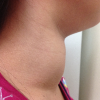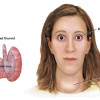I specializes in the diseases of the pituitary gland, thyroid, adrenal gland and pancreas and bone metabolism. I treat diseases such as Diabetes Mellitus, Goiters, hypo- and hyperthyroidism, osteoporosis and disorders pertaining to the reproductive glands.
I’m a diplomate of Internal Medicine and Nuclear Medicine. My specialty is in Diabetes and Thyroid. I do radioactive ablation of Thyroid cancer and Hyperthyroidism/Graves’ and Nodular Toxic Goiter.
We use radioisotopes to diagnose and treat certain diseases particularly thyroid diseases (hyperthyroidism and thyroid cancer). Specialty: Nuclear Medicine Local Board Accreditation: DPSNM Clinic Address & Schedule: Aquinas University Hospital Section of Nuclear Medicine F. Aquende Dr, Legaspi City, Albay 4500 Philippines Schedule: Thu: 1:00PM – 3:00PM Fri: 1:00PM – 3:00PM Social Network: LinkedIn
Thyrotoxicosis or hyperthyroidism is relatively rare in children. According to reports, the yearly incidence is 8 per 1 million children who are younger than 15 years old and 1 per 1 million in children younger than 4 years old. Among these patients, Graves’ Disease is the most common cause. It is noted that girls are affected five times more than boys. A family history of hyperthyroidism should be sought because many have a positive family history of autoimmune thyroid diseases. A clinical profile includes several month records of progressive symptoms, of which, the most common are often behavioral disturbances such » » » [Read more]
Autoimmune thyroid disease entails some sort of dysfunction from the body’s defense mechanism, in which the body does not distinguish its own organs and tissues, and rejects them, triggering inflammation and sometimes destruction. It can manifest either as hyperthyroidism (overactive thyroid) or hypothyroidism (underactive thyroid). The main types of autoimmune thyroid disease are focal thyroiditis, Hashimoto’s thyroiditis, atrophic thyroiditis, silent thyroiditis, postpartum thyroiditis and Graves’ disease. Focal thyroiditis may not present with a goiter and blood examination will show normal or sub-clinical hypothyroidism. Sub-clinical hypothyroidism means that the thyroid stimulating hormone level is high which reflects an underactive thyroid but » » » [Read more]
M.K., a 25 year-old female, Filipina-Japanese, presented at the Emergency Room due to abdominal pain. Her aunt stated that she had been noted to be very irritable for the past week before consult but attributed it to stress from the patient’s new job. She had been complaining of epigastric pain but only took AlMgOH, an antacid, which provided slight relief. The patient also claimed that she had been having nausea and had poor appetite, hence did not inject insulin for the past 2 days. She also experienced palpitation, heat intolerance, hyperdefecation and lightheadedness. The patient is a diagnosed case of » » » [Read more]
Excessive production of thyroid hormones by the thyroid gland causes the state of a hyperactive thyroid known as hyperthyroidism and usually is associated by diffuse thyroid gland enlargement. One cause of hyperthyroidism is a condition known as Graves’ disease. It is often associated with enlargement of the eyes known as Graves’ ophthalmopathy and sometime associated with abnormality in the bone around the eyes, the orbit, known as Graves’ orbitopathy. It is believed that Graves’ disease is a result of an immunologic process. Pregnancy has an important association with the development of Graves’ disease (hyperthyroidism). Some patients who were previously normal » » » [Read more]
The thyroid gland is an endocrine gland located in the neck in front of the windpipe. The normal size is about 12-20grams with an abundant blood supply. The thyroid gland produces two hormones, thyroxine (T4) and triiodothyronine (T3) which is consistently regulated by negative feedback to the brain specifically by thyroid stimulating hormone from the anterior pituitary and thyrotropin-releasing hormone from the hypothalamus. Excess or deficiency of these hormones is the underlying problem in thyroid diseases. Iodine is a critical component in the production of thyroid hormones by the body. The thyroid gland obtains iodine from the blood. The blood » » » [Read more]





